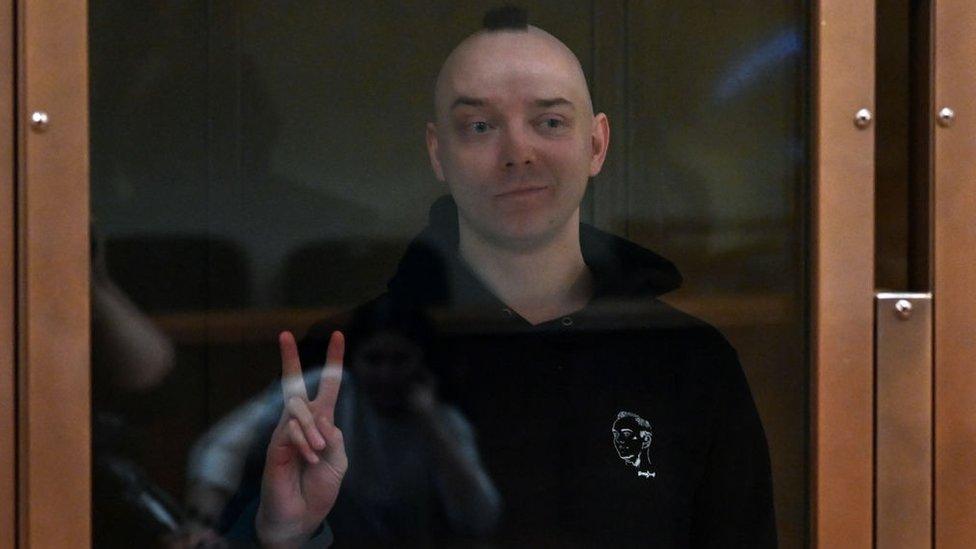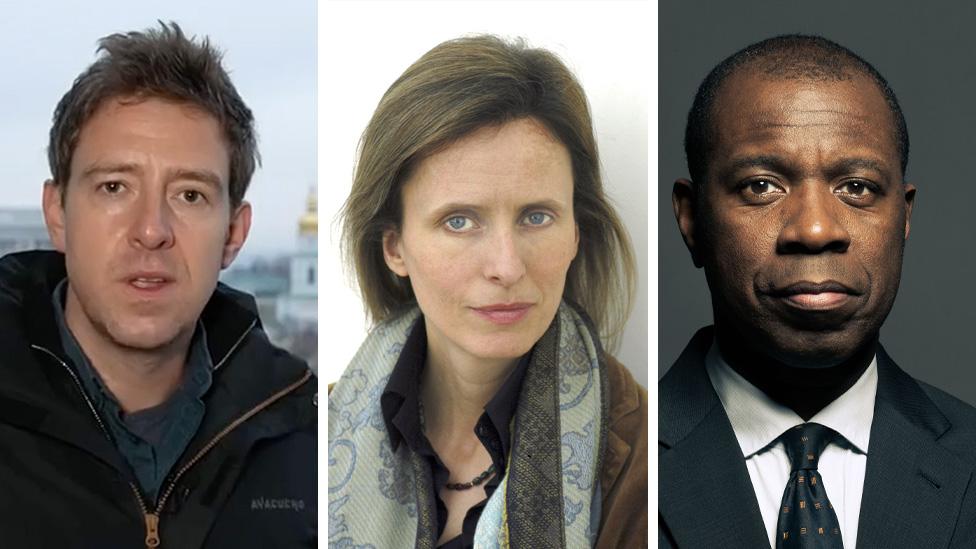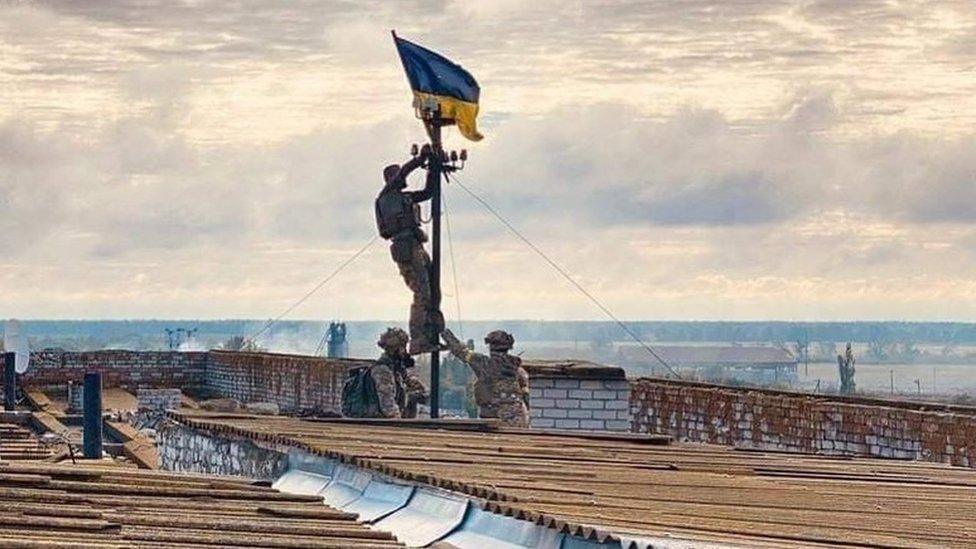Ivan Safronov Russian reporter who rejected deal gets 22-year jail sentence
- Published

Ivan Safronov in court on Monday
A Russian reporter has been handed a 22-year jail term after being convicted of treason charges by a Moscow court.
Ivan Safronov, a well-respected correspondent who worked for Kommersant and Vedomosti, was accused of passing military secrets to Czech spies.
He denied the charges - and earlier rejected a plea bargain, which could have almost halved his sentence.
The trial is the latest in a series of crackdowns on Russia's independent media since the war in Ukraine began.
Safronov, 32, was arrested in July 2020, after leaving journalism to work as an adviser to the head of the state space agency.
Last week, the BBC's Russian service reported that the charges are believed to be related to an article Safronov wrote revealing Russia's sales of SU-35 fighter jets to Egypt, which triggered an diplomatic outcry.
He was detained after being formally accused of divulging state secrets while working for the space agency.
But agency officials insisted that Safronov did not have access to state secrets while working there, and said the charges did not relate to this work.
Throughout the hearings, lawyers working for Safronov have come under sustained pressure. Two of them, Yevgeny Smirnov and Ivan Pavlov, have reportedly fled the country.
As the verdict was announced, a small number of the journalist's supporters chanted "freedom", and his legal team told state media that they intend to appeal against the verdict.
Before the verdict on Monday, several independent Russian outlets, including The Moscow Times' Russian Service, TV Rain and Meduza, called on prosecutors to drop the charges and release Safronov.
"The reason for Ivan Safronov's persecution is not 'treason', which has not been proven, but his journalistic work," their joint statement read.
The EU's delegation to Russia echoed the calls and accused Moscow of the "systematic repression" of independent journalism.
Since the start of the Ukraine war, Russia has launched a crackdown on independent media outlets.
In early March, legislators approved a new law imposing 15-year jail terms on anyone spreading "fake news" about the conflict.
Media outlets that "discredit the armed forces" also face tough punishments and prison sentences of up to five years.
On Monday, a Russian court revoked the operating licence of Novaya Gazeta, one of the few remaining independent news outlets in the country and a consistent critic of President Vladimir Putin.
The court said the outlet had failed to provide documents relating to a change of ownership in 2006. Its editor, Dmitry Muratov, said the ruling was "a political hit job, without the slightest legal basis".
A host of international journalists, including reporters from the BBC, the Times and the Guardian, have also been banned from entering Russia.
Announcing a ban in July, Moscow accused a number of British journalists of being "involved in the deliberate dissemination of false and one-sided information about Russia".
Related topics
- Published14 June 2022

- Published5 September 2022

- Published5 September 2022
